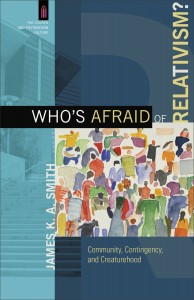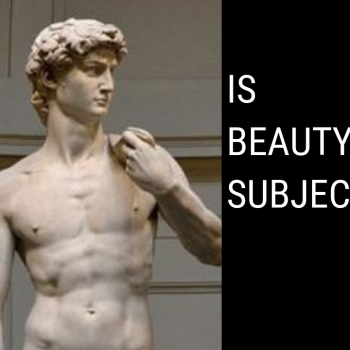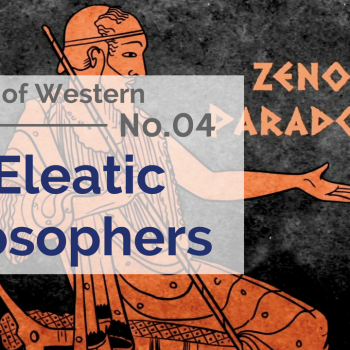Calvin College Professor of Philosophy James K.A. Smith is a rising star in the world of evangelicalism – and justifiably so.
He is a masterful teacher and clearly possess a brilliant mind, as this recent piece from the Gospel Coalition blog indicates. His book How (Not) to Be Secular: Reading Charles Taylor is the 2015 winner of the Christianity Today Book Awards (see a piece from me on the book here). In a review of that book, Harold K. Bush relates a story about Smith that illustrates why he is such an appealing figure:
In his volume Imagining the Kingdom, part two of a promised trilogy on the experience and phenomenology of worship and formation in contemporary America, James K. A. Smith describes an unsettling experience. One day, he finds himself in the loud and busy food court of a typical Costco near his home. There he sits, innocently reading a book in the food court. But upon further reflection, this act of reading turns out to be a deeply unsettling and disturbing moment, because it is a book by Wendell Berry, environmentalist extraordinaire, being consumed in the belly of the beast: a place that Smith decides might represent, for Berry, “the sixth circle of hell” (8). Smith’s self-reflection on his own cognitive dissonance between what he thinks he believes and what he in action believes and actually lives, illustrates precisely why I delight in studying the prodigious works of one of the most thoughtful Christian observers of American culture today. Especially since I feel that pain too: like Smith, I adore Berry even as I head to the nearest superstore to fill my trunk with bourgeois goodies at discount prices. So as I read Smith’s confessional observation, I find that I’m busted as well.
Writing about Smith’s book Letters to a Young Calvinist: An Invitation to the Reformed Tradition, theologian Michael Horton wrote: “My friend Jamie Smith is never boring. Most of the time I cheered ‘Amen!’ as I read these letters, but even when I disagreed, I appreciated Jamie’s model of charity and humility as well as conviction.”
Having now read several of Smith’s books and articles, I would have to agree with Dr. Horton’s assessment. You can get a taste of Smith as well by listening to a number of his talks on You Tube. Here is one of my favorites, as he speaks to a group of Christian college students about the question “Is there room for God in postmodernity?”
https://www.youtube.com/watch?v=fmjlDljju8Q&w=560&h=315Having given what I think is a befitting introduction to Smith and his work, what follows below is a brief summary of what I take to be the core message of Smith’s book Who’s Afraid of Relativism. This 2014 book has been reviewed in publications ranging from the Christian Century (a very positive, almost breathless, review) to The Evangelical Quarterly (quite negative review). Those wanting to check out the available online reviews can do so here, here, here, and here (most positive to most negative – the Christian Century review is not available for free online).[i] The following summary takes into account the author’s own reading of the book as well as those of these other reviewers.
Further, the following summary is a small part of a larger three-part book review that I am doing on my own blog, theology like a child…. Part I is up today, to be followed by Part II and III tomorrow and Friday.
On my blog, you will find not only this summary, but an effort to critically engage Smith’s argument in the book. There, I will also:
- highlight some aspects of the book I think are particularly helpful ; (part I)
- highlight some things I do not think are helpful or raise questions ; (part II)
- present an alternative model that takes the best of what Smith has to offer into account (part III)
I hope you will consider taking a look at the larger three-part review. In the meantime, here is my best attempt to sum up the core message of Who’s Afraid of Relativism:
***
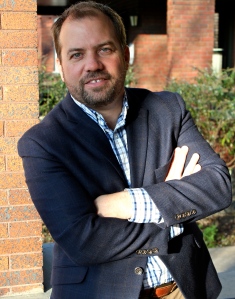
Is truth really “what our peers will let us get away with saying”, as Richard Rorty once quipped? James K.A. Smith dares to think that Christians have a lot to learn from this feared arch-relativist and “whipping boy” of Christian apologists. Noting his own gadfly proclivities (see 11-17), Smith dives in, specifically focusing on the form of relativism known as pragmatism (36). “Social constructivism”, which he describes as the “scholarly rendition of relativism” (20), goes hand-in-hand with this.
Smith argues that “Christians should be ‘relativists,’ of a sort” (12), and at the very least, is convincing in his argument that there really are important aspects to what Rorty says (chap. 2). He also deftly unpacks Ludwig Wittgenstein’s idea that the meaning of our language, verbal or otherwise, tacit or explicit, has to do with the way it is used in particular “forms of life” – and in particular situational contexts where particular goals are in mind…. “meaning is use” (chap. 3). Also, he explains in depth Robert Brandon’s argument that reasoning, logic and justification are primarily social practices, which are the real context for accountability (chap. 4, pp 130, 145).
In sum, Smith is looking to steal these philosopher’s good ideas insofar as they can help Christians better realize their creaturehood and the community, sociality, contingency, dependence, and finitude that comes along with that. Challenging those of us who sympathize with [evidently all] versions of the correspondence theory of truth, Smith states:
“…what counts as “correspondence” is, at root, a social production. Social context is not a necessary evil that “taints” our ability to represent the world; rather, we are embedded in social practices that are the matrix from which all of our knowledge emerges… practices of “justification” are going to be relative to that “society,” that community of practice. To wish it otherwise is to wish away our finitude. (p. 85, italics his)[ii]
As the Christian Century reviewer put it, those Christians who see things otherwise necessarily “hold on to representational notions of truth by which one’s interior impressions precisely mirror external reality” (and hold this view, with their “all-seeing impregnability”, to preserve power and privilege). Smith himself agrees with Rorty (and evidently Charles Taylor, see 24, 25) that many Christians are trapped in their referentialist (“’naming’ theory of the word-world relation”)… representationalist, (“inside/outside picture of mind and representation”, where “something ‘inside’ our minds… hook[s] onto things ‘outside’ our minds”)… realist (“correspondence theory of truth”) frames of mind (24, 88). “Realism”, as he puts it, is not the only way to affirm something as true (25). In understanding what Smith is getting at I think this statement about Brandon’s explication of “objectivity” is particularly helpful:
“Brandon’s project is to secure an account of objectivity without lapsing back into the representationalism that is assumed behind realist, “correspondence” accounts of objectivity. His goal is to explain how propositional contents can be “objective in the sense of swinging free” of the attitudes of the linguistic practitioners deploy them in assertions” ([Articulating Reasons, 2000], 188, emphasis added). A claim will be “objective” in this sense if it is not idiosyncratically tethered to subjective impressions; that is, an “objective” claim is one that can be shared because it doesn’t depend on the attitudes of specific linguistic practitioners. However, that doesn’t mean that it doesn’t depend on other factors and conditions [me: here is where Smith would say relativism is essential – things and everything always depend on a context]. To say that an “objective” claim swings free of the attitudes of linguistic practitioners is not the same as saying it is free of all conditions or independent of the communities of discursive practice. Brandon has belabored the point that all claims are always and only made within the ‘space of reasons’ that is forged in a linguistic community. Thus he’s after ‘objectivity of a particular sort’ (190)” (p. 147 in Smith)
Indeed he is, and that is likely to scare the heck out of many of us. “It’s not that knowledge is either social or ‘objective’; rather, objectivity is a social accomplishment” (93) – it does not lift us out of our “contingency, creaturehood, and community” (149; see 97 also).[iii] Further, while “objectivity” is certainly related to truth (see 147 and 148 for more), truth in this narrow sense of the word is ultimately “warranted assertability” or that which is “good for us to believe” (84, italics mine).[iv] As one reviewer helpfully put it, “truth is not an argument but key patrol of meaning and significance”.
“Why is Smith messing with this stuff?”, we might think. Here he might say, “now don’t be too hasty here”… reminding us that both Rorty and Brandon affirm “that we all inhabit a shared world that pushes back on us – a shared environment with which we ‘cope.’” (see 95-97, 100) We are not only accountable to a “community of fellow knowers”, but must “grapple with the ‘antics’ of things”. In other words, Smith says constraint does not necessarily equal correspondence (28). He also smartly points out how we tend to reduce knowledge to “know-that”, but that “know-how is not un-true”, but “true differently” (96, italics his). And so, Smith argues, perhaps Rorty shows us a “realism without correspondence” – something “to which Christians should be committed” (88, 89; see 97 also).
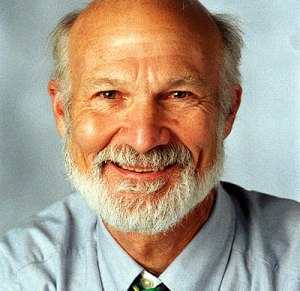
As a reviewer of Smith’s book puts it: “Suggesting that relativism does not mean that ‘nothing matters,’ but simply that ‘everything depends’ on some context, Smith claims that Christianity is fundamentally about such dependence – on God and the community of faith.” (J. A. Simmons, Furman University, Choice Reviews Online, italics mine).
It is hard to imagine any Christian arguing that such dependence is not an element of Christianity (though it is fundamentally about God’s love for His creation)[v] – or that our claims to knowledge and truth are “relative” in the sense that they are “related to something or Someone, relative to, say, a context or a community” (179). This is why Smith provocatively says:
“’Is Christianity true?’… ‘It depends.’ It depends on the One in whom all things hold together.” (31)
And this, ultimately, is why Smith says that we can affirm with Wittgenstein, Rorty, and Brandon that “what is true depends on what we human beings say or think” (29). To say that truth is relative is not equal to saying truth is arbitrary (30).
In short, for Smith the word “relativism” need not signify “arbitrary or subjective or governed by fleeting whims” – i.e. “nothing matters”, but rather “everything depends”. For “as creatures, we are contingent, dependent and relative (i.e., in relation—to the Creator, but also to other creatures)” (179-180).
FIN
Update: A sentence above originally read: “It is hard to imagine any Christian arguing that such dependence is indeed an element of Christianity (though it is fundamentally about God’s love for His creation)” Big typo. “Indeed” was taken out and “not” was added.
Images: James K.A. Smith: http://www.calvin.edu/~jks4/JKASmithcasual.jpg ; Stanley Hauerwas: http://www.andyrowell.net/.a/6a00d8341c0c3a53ef011168c2070d970c-pi
Notes:
[i] One of the more positive reviewers has high hopes for Smith’s approach: “…even more important, it is the need to re-orientate our thinking to move away from a conservative-liberal divide, toward a more reconcilatory “post-liberal” or “post-conservative” alignment.”
[ii] Smith writes elsewhere: “The only social constructionism that will be able to evade [Christian] Smith’s critique will be a pragmatist version that emerges from Wittgenstein’s more radical critique of representationalism (or referentialism). These are roughly synonymous ways of describing knowledge as a relation of ideas (‘representations’) in my mind that ‘correspond’ to reality ‘outside’ my mind.” (p. 24.
[iii] My own approach to the issue of objectivity: “”objective reality” at the very least means that we, being personal subjects, can “subjectively” agree that there are certain aspects of reality (i.e. things, regularities, etc.) – considered both locally and more broadly, considered both inside and outside our bodies, considered both more particularly and more generally – that neither one of us should try to – and in fact many times cannot – alter by our interpretation and imaginative response to it[.] And if this is the case, is not what we debate – based on both the various kinds of evidence that “find us” and that we seek to find – simply where the lines are on our imperfect “maps” of reality (to use what I think is a good metaphor) – scrupulously created as “objectively” as we feel we can manage (and not done so apart from the wider question of “narrative”!) – should be drawn and why?”
[iv] Evangelical theologian Donald Bloesch (1928-2010) was a proponent of fideism, which grounds faith “on evidence that faith itself provides”. For Smith, his way of looking at things is a step up from fideism (see 149).
[v] I submit this kind of partial truth is precisely what made Schliermacher’s program – where Christianity and religion as a whole were reduced to the feeling of absolute dependence – so seductive in the early 19th c.

